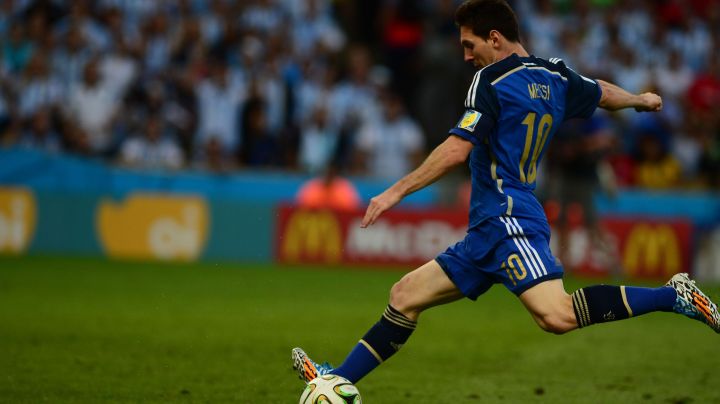Lionel Messi Suspension Lifted After Appeal, So Why Did FIFA Even Bother In the First Place?

Photo licensed under the CC BY 3.0 br license.
On Friday, FIFA did what everyone thought they would do and overturned the rest of Lionel Messi’s four-game suspension for yelling obscenities at a referee last month. In a press release announcing the reversal, FIFA stated that “the evidence available was not sufficient to establish to the appropriate standard” of the Appeals Committee.
As a result, Messi will be available for the rest of Argentina’s World Cup qualifying matches later this year, as they look to secure a spot in the 2018 World Cup following a shaky campaign that finds them in 5th place for CONMEBOL qualifying.
So, why did FIFA change their mind? After all, if the world soccer’s highest governing body figured that Messi should be suspended for allegedly yelling “la concha de tu madre” at a referee, that decision should be considered iron-clad unless new evidence came to light. Otherwise, why did FIFA rush into a decision that affected at least one World Cup qualifying matchup (Argentina’s 2-0 loss away to Bolivia) and could have altered three others, potentially leaving Argentina out of Russia 2018?
That might not be correct question to ask, actually. The correct one may be “why did FIFA even bother suspending him for four games in the first place?” Never mind that the expression yelled out by Messi is common slang in Argentina, and never mind that four game bans are generally handed down for violent behavior. Especially don’t pay attention to Argentina’s flimsy “he yelled it at the air” defense, which is too ridiculous to consider. If we take FIFA’s explanation as the truth, that a lack of conclusive evidence fueled the reversal, then how could they have found enough evidence to suspend him in the first place?
This points to a bigger problem with soccer governing bodies and their inclination towards over-punishment in order to seem like they have things under control. While Messi’s ban was for something that falls under the category of “verbal abuse,” it’s mild compared to recent events in Mexico, where two players got banned for a year for making physical contact with a referee. Want to guess if those year bans were upheld in appeal? Congratulations if you guessed “absolutely not,” both players will be playing within the next month.
And so it will continue, with organizations like FIFA and UEFA banning players for seemingly excessive amounts of time and then backtracking on those hardline punishments. One could argue that this is exactly the reason for appeals, but that’s little consolation to players like France’s Mamadou Sakho, who was banned for the semi-final and final of the European Championships last summer due to taking a prohibited substance, only to find out later that his ban should never have happened due to the substance being perfectly legal. UEFA banned the defender for the deciding games of a tournament held in his native France, only to backtrack and lift the ban later on, when it didn’t matter for Sakho.
With Messi’s ban, at least FIFA reversed its draconic ruling before he served the remaining three games, but if Argentina misses the World Cup by 3 points or less, questions will be asked, chief among them “did Messi’s absence cost them in Bolivia?” After all, if the lack of evidence was so important that three extra games seemed excessive, what’s to say that Messi should have even been banned for one?